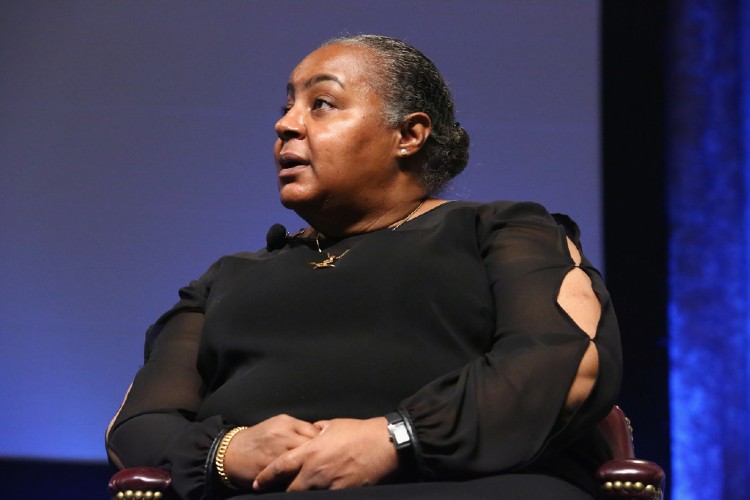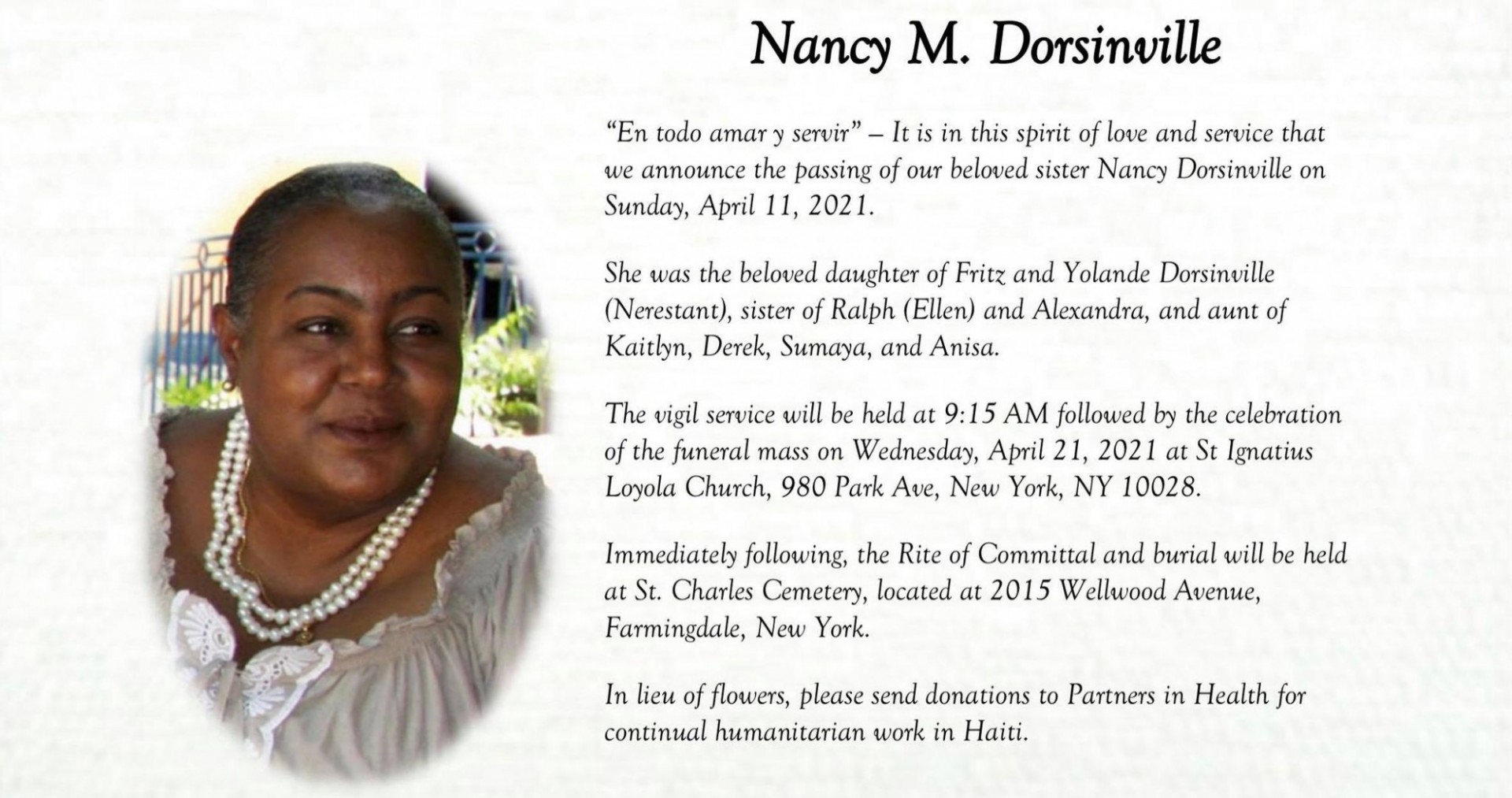Haitian activist, leader, and scholar Nancy Dorsinville passed away this week and people across our local community and around the world are expressing their condolences and honoring her legacy.
Nancy was a senior policy advisor to the United Nations Office of the Secretary General’s Special Adviser on Community-Based Medicine & Lessons from Haiti. She also worked in and with Haiti in the UN Office of the Special Envoy at the time of the devastating earthquake in 2010. In those roles, she represented the government of Haiti to the United Nations, the World Bank, and the Clinton Foundation, among others. Prior to her work at the UN, Nancy worked as the director of Academic Advisement in Global Health at the Harvard Initiative for Global Health and as the director of HIV/AIDS Prevention at the Alliance for Positive Change (formerly AIDS Service Center of Lower Manhattan, Inc). She has been a Revson Fellow at Columbia and a MacArthur Fellow at the Harvard School of Public Health. An anthropologist by training, her expertise included HIV stigma, health disparities, and gender-based violence.


